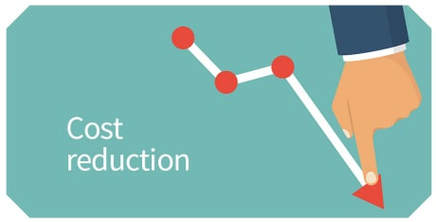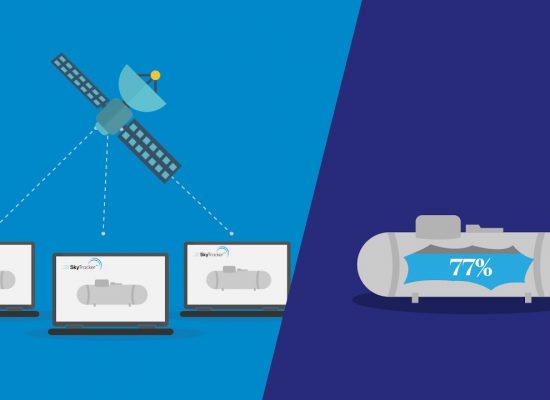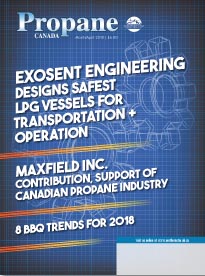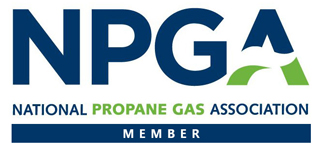Many of us in the industry, annually look for new ways to improve profits. Often, we look at our operations to see where we can squeeze out some additional savings. Fortunately, it seems that many new technology tools have come out to help us “get there.”
If you’ve gone to a trade show recently you too may have been assaulted with operational efficiency tools, tips, and tricks that can help you advance your company’s profits, reduce waste, and streamline hours and hours of work out of the business. But which tools you choose depends on where you are at in your business productivity enhancement life cycle…what have you already implemented is an indicator of what you should be looking at next.
It seems that this trend of using technology to improve profits started around 30 years ago when the first propane software solutions designed to combine billing, forecasting, customer relationship management, account receivables, inventory, etc. hit the market. They were great and allowed us to run our businesses with many fewer office personnel. They even helped us improve our pricing and fee structures, so we could get 50 per cent to 200 per cent or more profit per customer. It significantly improved how our offices functioned in multiple ways and had a meaningful impact on the bottom-line.
Next, around 20 years ago electronic registers and “in-cab computers” started to appear eliminating hours of manual en-try of delivery tickets into the office software. Fewer mistakes and tons of time saved showed us that this tool also helped the office teams streamline and increase productivity.
Routing and dispatching solutions then started appearing. These, like the earlier solutions, were costly but because the savings far outpaced the costs companies plowed into them. These solutions began to save the dispatcher substantial time allowing one dispatcher to do the work of three and allowing drivers to deliver between 10 per cent to 50 per cent more deliveries in a day… That of course can result in significant payroll and vehicle cost savings.
More recently we see tank monitoring solutions (17 and counting) appearing at every trade show. They are yet another great tool to reduce total deliveries per customer. A 25 per cent reduction in deliveries per customer very quickly means that you need 25 per cent fewer trucks and drivers… a great feat no doubt. And now that the newer monitoring companies are finally bringing the costs down, the cost benefit equation is starting to make sense here… Due to new entrants and price pressures the industry projections are that this tool will cost significantly less very soon, foretelling of intriguing ROI’s here as well.
Again, these are another way to bring operational efficiency to the office manager or dispatcher role as this is the person who normally determines frequency of delivery and tries to minimize deliveries while preventing run outs. Yes, this tool also brings some nice efficiencies to the delivery driver work force as well.
We are also seeing the merging of technologies as the in-cab computer for delivery tickets has merged with the routing software and turn by turn devices and, in some cases, has merged with the office software as well. This combination of tools does bring surprising benefits which may be why there are now over 32 different “in-cab computer” solutions on the market. The costs, ease of use, reliability, and features of each vary wildly so it is imperative that you do a deep dive prior to purchasing…compare several solutions prior to purchasing. (Contact us for the inside scoop, if needed). The choices and competition are a blessing as the pricing has been going down while the features are improving.
All the tools above seem to focus on office efficiency, delivery, efficiency, and driver efficiency. The next frontier for our industry is to bring efficiency to the masses of paperwork for service technicians, sales reps and safety documentation. Though it costs more there are some solutions like salesforce but unfortunately the single format solutions seem to cost substantially more. Case-in-point, the few service tech solutions in the market (often provided by your back-office software solutions) can only work with that one office software platform and typically are priced such that very few propane companies have purchased.

Fortunately, consolidation is occurring here, so you can now get single solutions that automate the combination of service, safety, and sales in one app. This lets us get a three-for-one bringing exciting cost reductions to the industry.
One such solution combines propane specific safety, service tech, and sales rep tools into one easy app (Apple and Android) so you can bring a whole new level of efficiency, automation, increased sales, increased installations, less paperwork, and less clerical work which means improved profitability. The new frontier is safety, service, sales automation all in one app downloadable from the app store. You can check it out at TankSpotter.com or see it on your favorite app store. Technology sometimes feels like a moving target as every solution is either making improvements, merging with other solutions, adding features, updating, or you find that some are not evolving but rather are getting left behind. That said the trend has been and continues to be that everything is becoming an “app.”
A critical point is that there are different versions of apps. Native apps are the kind that work outside of cellular areas (where our industry thrives)… make sure that you only work with solutions that are true “native” apps and that can work on both Apple AND Android devices as this shows a stronger software technology company backing the product and shows that they understand the needs and desires of the real propane industry. Apps that do not work outside of a cell signal may be good if you only work in a highly metro area – these are not native apps and for the propane industry may be problematic once you get into rural areas, hence not recommended. As tools merge, blend and combine the benefits to our industry somehow get larger. Somehow it means there is just less paperwork that needs to get shuffled around. The synergies of combining the solutions mentioned above actually result in less work so we can focus more efforts on acquiring more customers, improving customer service, installing more tanks and doing more deliveries, not to mention improving the safety of all our faithful customers as well.
In the years ahead, we may see other new technologies that will also bring great improvements to our industry. Those listed above are providing the best bang for the buck at present. If you are interested in seeing the ROI (return on investment) analysis

for some of these solutions let us know, the benefits of the right technology can be astronomical. If you need guidance or insights into these feel free to reach out. If you have other technologies or techniques that you are using to improve operational efficiencies that also bring significant bottom-line benefits feel free to reach out and share your thoughts, comments, and suggestions.










